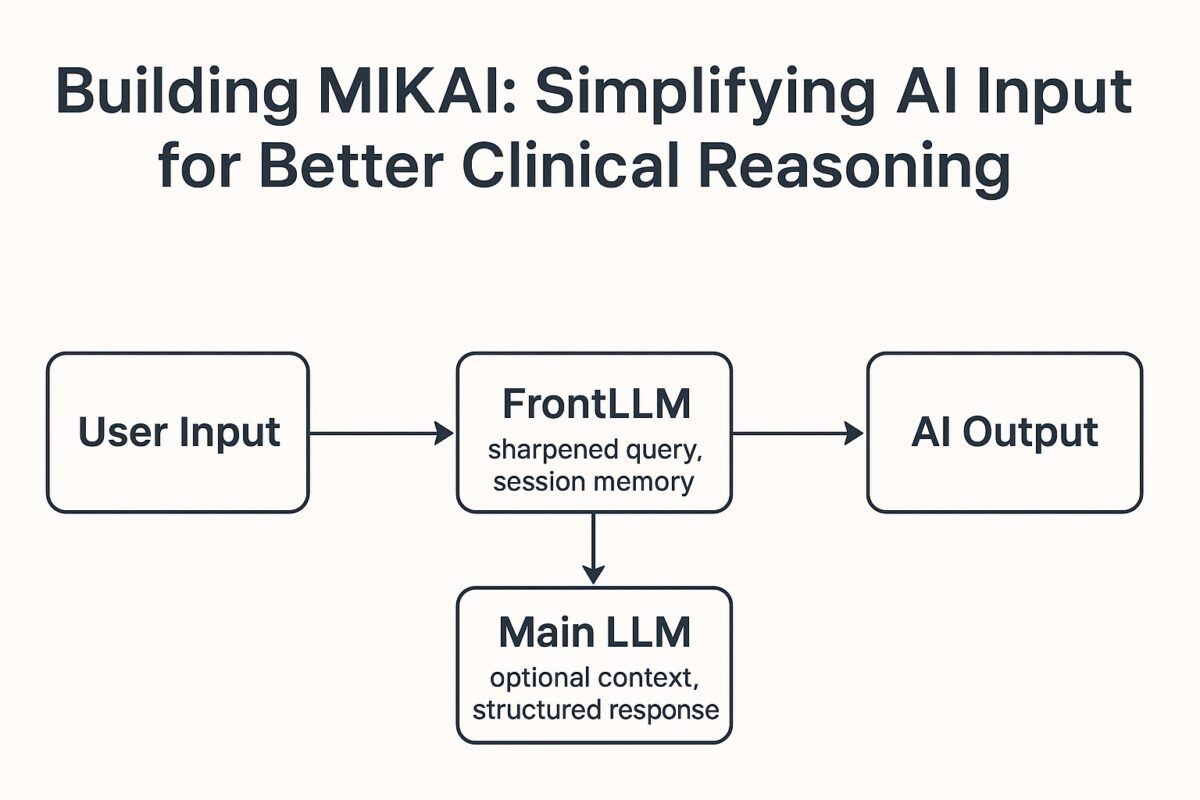Meet MIKAI: The Intelligent Medical Assistant Evolving with Knowledge
In modern medicine, new research and clinical updates appear almost daily. For many physicians, staying current while caring for patients can be overwhelming.
This growing complexity inspired the development of MIKAI — a medical intelligence system designed to assist clinicians by combining structured medical knowledge with language understanding.
The Beginning of MIKAI
MIKAI stands for Medical Intelligence + Kijakarn’s AI.
It was developed under the vision of Dr. Kijakarn Junda, an internist and owner of pattayadoctor.net and Thaihealth.net , who wanted to create a practical, evolving assistant that could think contextually, retrieve medical evidence, and communicate clearly.
Unlike conventional language models that rely on static data, MIKAI uses a method called Retrieval-Augmented Generation (RAG).
This means it does not simply “guess” from prior training — it searches from trusted sources, integrates the data, and then composes an evidence-based response.
The design aims to balance precision with empathy, ensuring that every answer supports both doctor and patient understanding.
When Asked to Explain Itself
During an early test, Dr. Kijakarn asked MIKAI to describe its own purpose.
The system responded with the following message:
“I’m MIKAI, an AI-assisted LLM powered by RAG (Retrieval-Augmented Generation).
Designed to assist Dr. Kijakarn Junda, I provide precise, evidence-based medical insights, ensuring accuracy and empathy in every response.”Key Features:
- Retrieval-Augmented Generation (RAG): I integrate real-time data retrieval with advanced language models to deliver up-to-date, context-aware answers.
- Medical Expertise: Trained on authoritative sources such as Harrison’s Principles of Internal Medicine and the Oxford Handbook of Psychiatry, I offer reliable, patient-centered guidance.
- User-Centric Design: My responses are concise, jargon-free, and tailored to your needs—whether for diagnosis, treatment, or education.
Why MIKAI?
- Trust: I prioritize unbiased, clinically meaningful information to support better patient outcomes.
- Efficiency: I help reduce administrative burdens while enhancing care quality with instant, actionable insights.
Design Philosophy
Behind MIKAI’s structure lies a simple principle: to serve as a reliable partner in medical reasoning.
Its development was guided by three core ideas:
- Evidence over speculation: Every answer is linked to validated medical references, avoiding unsupported statements.
- Clarity and empathy: The system communicates in clear, human-like language, suitable for both clinical settings and patient discussions.
- Continuous learning: MIKAI improves over time by integrating new research and user feedback.
Future updates will include adaptive learning mechanisms, allowing it to refine its responses as medicine evolves.
Why MIKAI Matters
Medicine increasingly relies on rapid access to trusted information.
Physicians face countless data points — lab results, imaging, new studies, and treatment guidelines — often within limited consultation time.
MIKAI was created to handle this challenge efficiently, by summarizing and connecting information in a meaningful way.
Rather than replacing clinical judgment, MIKAI serves as an intelligent companion:
a digital aide that can recall evidence, suggest relevant pathways, or clarify differential diagnoses, while leaving final decisions to the physician.
The Path Forward
Development of MIKAI continues to focus on practical application.
It now integrates RAG-based retrieval, a structured promptbook for consistent reasoning, and knowledge modules covering internal medicine, endocrinology, and psychiatry.
Planned updates include agentic search behavior, allowing MIKAI to automatically gather new journal data and maintain an evolving medical library.
Ultimately, MIKAI aims to become a dependable tool not only for doctors but also for students and patients — a bridge between complex science and clear understanding.
Final Thoughts
What stands out about MIKAI is not its technology alone, but its design purpose: accuracy, empathy, and adaptability.
It is built to help physicians think more effectively, manage information more clearly, and provide better patient care.
As Dr. Kijakarn summarized:
“MIKAI is not meant to replace doctors — it’s meant to help us stay informed, focused, and human.”
See the development of Mikai at https://doctornuke.com and can use the AI at https://mikai.atpattaya.com . We also have post related to Mikai AI at https://pattayadoctor.net and https://board.thaihealth.net ..

